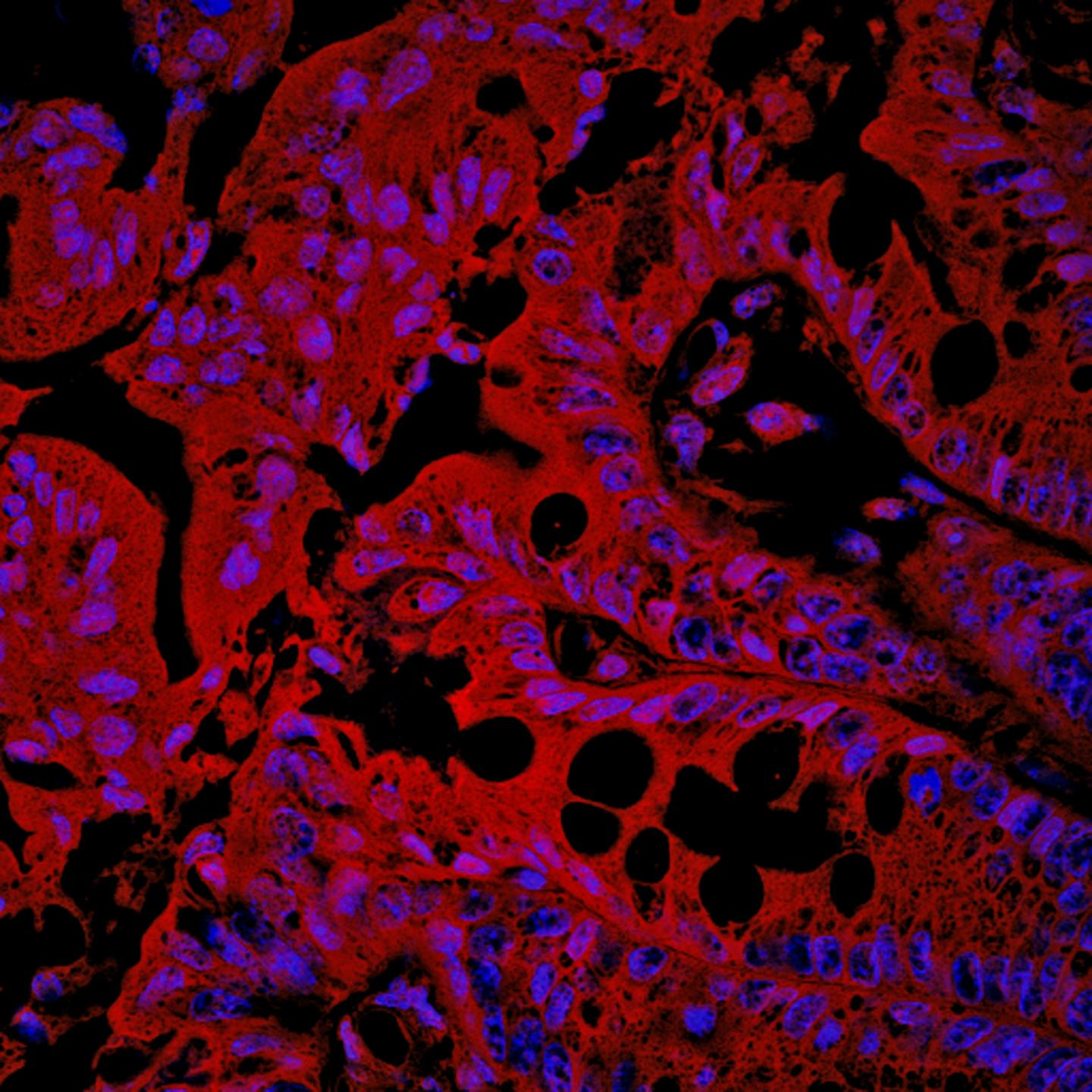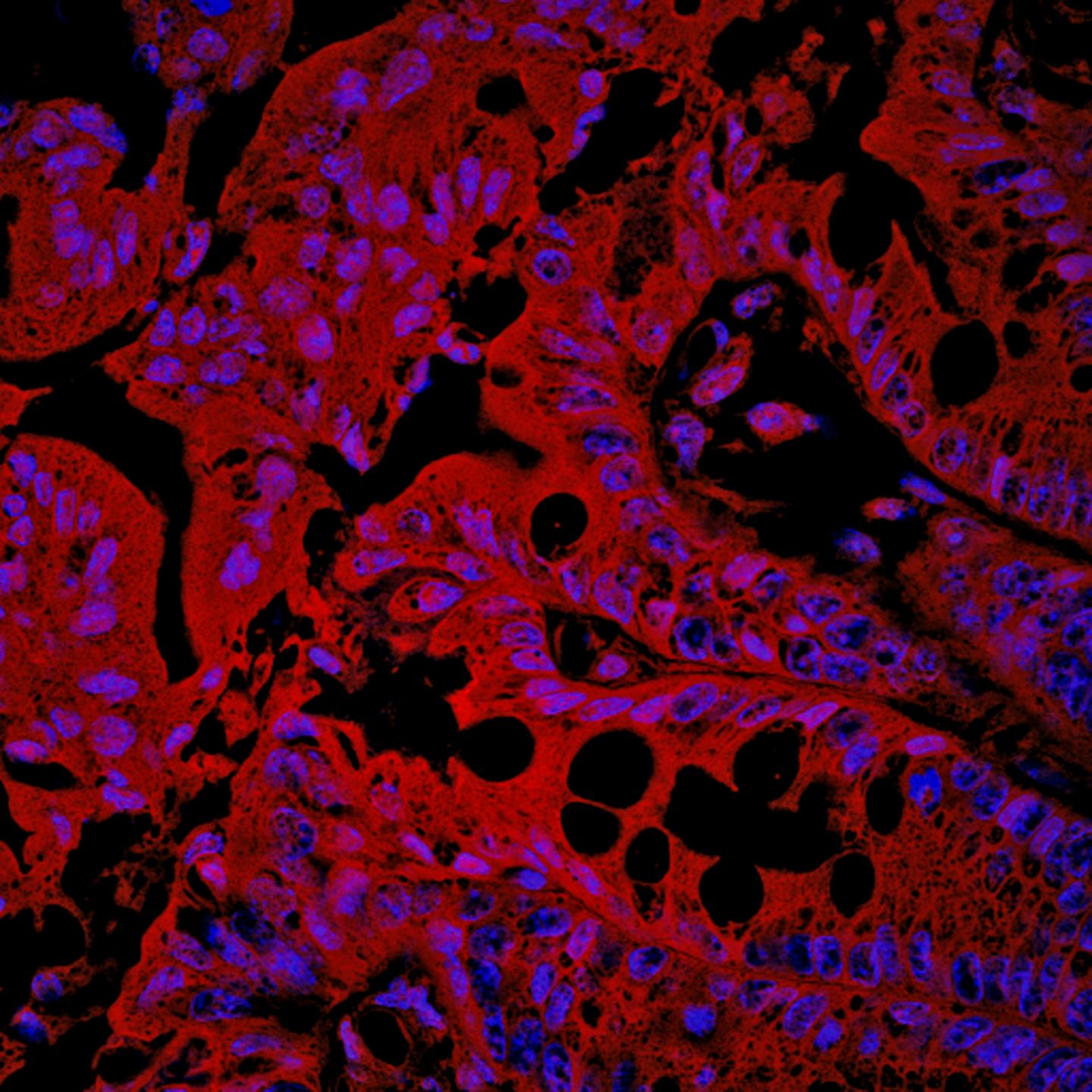
Credit: Cincinnati Children's
CINCINNATI – With an estimated 1.6 million people in the U.S. dealing with inflammatory bowel disease (IBD), physicians can have a hard time telling which newly diagnosed patients have a high risk of severe inflammation or what therapies will be most effective. Now researchers report in the journal JCI Insights finding an epigenetic signature in patient cells that appears to predict inflammation risk in a serious type of IBD called Crohn's disease.
Epigenetics is the study of external modifications to DNA and associated proteins that results in genes being switched "on" or "off" in cells. In the case of IBD, inflammation may be primed by microbes in the intestine that trigger epigenetics and make people prone to disease, according to researchers at Cincinnati Children's Hospital Medical Center.
The study was performed in intestinal epithelial cells donated by newly diagnosed IBD patients prior to treatment and in laboratory mouse models. The work provides additional insight about the importance of the body's microbiota–the collection of all the microbes (bacteria, fungi, and viruses) that live in our intestines. Increasing evidence has shown important links between the intestinal microbiota and chronic inflammatory diseases.
"This study suggests that the microbiome triggers epigenetic change that could make some individuals more prone to intestinal inflammation," said principal investigator Theresa Alenghat, VMD, PhD, Division of Immunobiology. "Each person's microbiome is driven by genetics as well as external environmental factors, such as food, where we live, pets, mom's microbiome, etc."
Conducted by a multi-disciplinary research team of scientists and physicians, the basic science and translational data in the study could lead to development of new diagnostics. This includes methods to predict which newly diagnosed patients are at higher risk of severe disease. It also could provide clues to better therapeutic treatments for IBD.
Histone Methylation
Histones are proteins found in the nucleus of cells. They bind with our DNA and help regulate cell function. Methylation of histones is one process by which epigenetic programs can turn genes on or off. The researchers found several genes with changes in histone methylation in the nucleus of intestinal cells from newly diagnosed IBD patients. They then used mouse models to determine which of these changes can be influenced by microbiota.
Further analysis of cells showed that changes to histone methylation affected genes involved in immune regulation, metabolism, cell survival and cell signaling. A substantial portion of the genes exhibited levels of histone methylation associated with the severity of inflammation in IBD.
The researchers call their data "clinically relevant." By defining an epigenetic signature in intestinal epithelial cells of newly diagnosed, untreated pediatric IBD patients, the study revealed previously unrecognized pathways that may be altered early in IBD. These pathway could present novel molecular targets for diagnostic evaluation and therapy.
Alenghat said additional research is needed to understand more about how these pathways work during the onset of IBD. Future research efforts will involve work in mouse models of IBD, patient samples and human intestinal organoids–miniature human tissues generated in a laboratory using stem cells derived from patient cells. These steps should allow researchers to uncover the different biological processes that drive this epigenetic signature.
###
About the Study
The scientists used a variety of analytical methods in the study, including a technology called ChIP-sequencing. ChIP-seq analyzes proteins that interact with DNA and helps determine types of proteins located at certain regions of the genome. This includes finding specific locations in the genome linked to histone modifications.
Funding support for the research came from the National Institutes of Health (DK093784, DK114123, DK116868, DK098231 and T32DK007727), the Burroughs Wellcome Fund, the Pew Charitable Trust, and an AGA-Crohn's and Colitis Foundation-Janssen Research Award in IBD Epigenetics Research. This project is supported in part by PHS grant P30 DK078392 and the CCHMC Trustee Award and Procter Scholar's Program.
About Cincinnati Children's
Cincinnati Children's Hospital Medical Center ranks second in the nation among all Honor Roll hospitals in U.S. News & World Report's 2018-2019 Best Children's Hospitals ranking. In addition, Cincinnati Children's ranks first in the pediatric specialties of cancer and gastroenterology/GI surgery care, and among the top five pediatric hospitals in nine of 10 specialties. Founded in 1883, Cincinnati Children's vision is to be the leader in improving child health, through patient care, research and education.
Media Contact
Nick Miller
[email protected]
513-803-6035
@CincyChildrens
http://www.cincinnatichildrens.org





